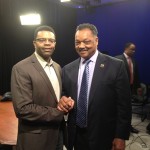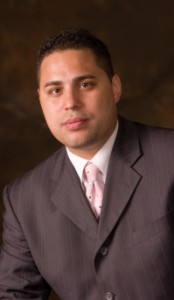Dr. I. David Byrd July 1, 2019
“If a man makes a promise to the LORD or says he will do something special, he must keep his promise. He must do what he said”
Numbers 30:2(NCV)
We have spent the first six months of 2019 unpacking the many promises of God. We’ve seen the grace and mercy He provides to us day by day. We’ve seen that we can depend on His promises. We’ve search scripture to confirm His promises. Yet, doubt, disappointment or disillusion creep in when we think He has not fulfilled His promise to us. This month we pause, turn the spotlight, flip the script, reframe the focus to explore the promises we have made to God and ask, “Can He depend on the promises we have made to Him?”
When you give your word, you’re putting your honor on the line. You’re implying that others can trust you because you have integrity. Have you ever considered how God hears the fulfillment of your promises to Him –
I’m willing to offer a belief in you generally, but without specifics attached to it. If what you are asking is too hard for me to do, you’ll understand if I avoid it. I will sacrifice for others as long as it does not affect my own self-interest as I face life’s daily events. I studied your Word and used my intellect to discern all that was right and wrong with it. Besides, it was written by imperfect men. I ignore the parts that don’t make sense or make me uncomfortable. I’ll proclaim my allegiance to you by judging people on the parts that don’t inconvenience me. I’m willing to love those who are like me but as your Word says, I’m required to love my neighbor not those others. I’m not a minister so, at my own discretion, I will tell others about the Good News. I asked you to alleviate that situation and you told me “your grace is sufficient”; I know you understand that’s not quite going to cut it.
Sound crazy? Before you too quickly dismiss this and while you may not audibly say these things to God, have you not conveyed these words to Him by your words and actions? God expects all true believers to be His emissaries. One day we will all have to stand before the Creator and answer the question, did we take Him at His Word and keep our promise?
The most basic promise of most believers is to serve Him. Serving is the obligation to love Him. John 14:15 defines loving Him as keeping His commandments. There is a direct link between His commandments and His promises. They are our reward for a life of faith, belief, and devotion. When we prioritize, pick or choose which commandment to focus on, we open the door for the enemy to get into our heads. My friend says, “If the enemy can cause us to doubt one promise from God to us, then over time that will cascade into uncountable other questions creeping into our heads and causing more doubt.”
Today I pose a set of questions that will allow you to unpack how well you have kept your promises to Him. Grab a cup of coffee, tea or your favorite beverage. Find a quiet space to work through them. You can choose how honest to be with yourself in your answers. This is between you and God. These questions are not designed to challenge you from my own perspective. It is the Word of God, the Word that Christ committed to His Church, and the Word that we are commissioned to defend and proclaim. The Word that can keep the Church strong and pure if we believe it and obey it. We convey our promises to Him by our actions and our deeds. Our actions should seek to please God, not have God please us. Special thanks to Chuck Bengochea and Tim Donoho for allowing me to integrate some of their questions with my own:
1. What real sacrifices have you made for Christ? The operative word is sacrifices. Not what have you done for Christ, but what have you truly sacrificed. Webster defines sacrifice as, “forfeiture of something highly valued for the sake of one considered to have a greater value or claim”
2. What pain have you suffered for God? List 3 examples
3. List three significant gifts that you have given to God that forced you to change your lifestyle for at least three months.
4. If you knew you were going to die soon, what legacy would you leave behind that would benefit the body of Christ?
5. Have you ever been so hungry for the Word of God that you couldn’t sleep until you had meditated on it for a while?
6. What does it look like to “Seek God with all of your heart”? What changes would you have to make?
7. Do you know God well enough that He could brag on you if He wanted to? What would He say?
8. Learning to fully surrender to God is a journey; being willing to release your families, your financial future, and your health can be very difficult. Where are you on that journey? What do you still hold onto tightly and why? What do you think would be the outcome if you fully released that part of your life to God?
These are brutal questions for some. For others, these will be the most difficult questions that we have to answer in demonstrating your promise to God. Some of you simply won’t attempt to answer because the spaces for answers might be blank. I pray your first response will be to drop to your knees and join me in asking God to forgive us for not offering him our best.
Processing your answers will set you on a journey. You will find or awaken a depth of faith that wasn’t previously present. It is not too late to fulfill your promise to God; start today working on doing what His Word asks you to do and watch the blessings of the Lord come. E-mail me the challenges, roadblocks, and detours you experience on this journey so that I may pray with you and encourage you as you engage, discern and make conscious choices as you walk out your destiny.
Father God,
Forgive me for not always holding up my side of this covenant relationship. Use me as Your tool, not for my own purpose, but for Yours. Inspire me each day to seek out how I might truly be a worthy servant to You. Give me the opportunity to share my faith in You with others in both my words and actions. And give me the courage to do it boldly, without fear of what the results might be, knowing that it is solely under Your providence what the outcome will be.
In Jesus name we pray, Amen









